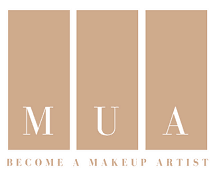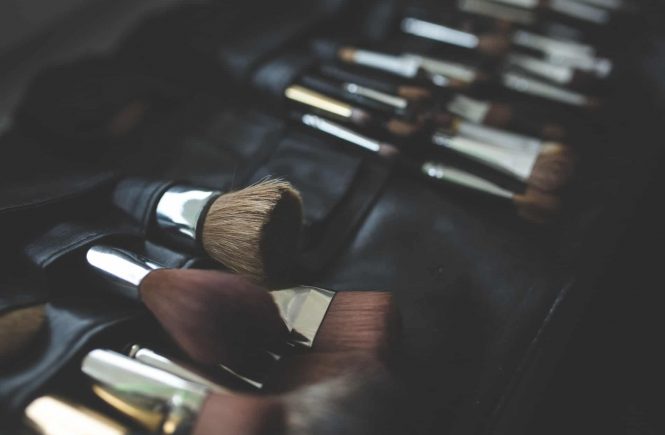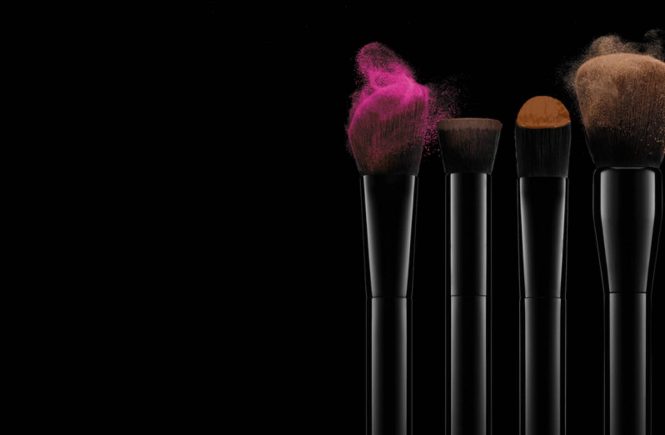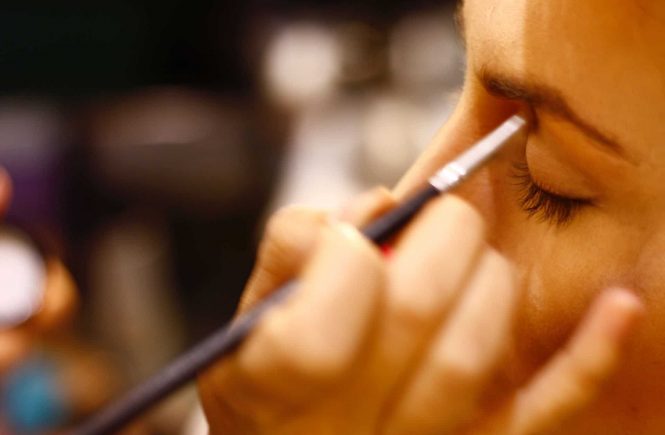Although it’s certainly possible to be a self-taught makeup artist without formal training, these days with the widespread availability of YouTube makeup tutorials and with every second person being able to be “okay” at applying makeup, it’s crucial to set yourself apart from the pack and become qualified as a makeup artist. This will truly set you on the right path as a professional and will enable you to be able to take charge of your career as a MUA.
Without training and qualification as a make-up artist, you will not be able to charge as much of your clients and you will likely be overlooked for bigger, more glamourous jobs (such as fashion makeup artist, theatre makeup artist or even celebrity makeup artist). So you must ask yourself now what you want from your career as a make-up artist… do you want to take on only a few freelance clients? Do you want to be self-employed but take on more and bigger clients? Do you want to be employed by a cosmetics company such as MAC as a specialist makeup artist?
Whichever your chosen niche, you’ll find the info that you need to start your career here.
If you’re serious about becoming a makeup artist, though, we do strongly suggest embarking on some training and qualification. Many makeup courses are short term and can be paid in instalments, so you can earn a living as a freelance makeup artist while you study to become a qualified makeup artist.
Proper training won’t just give you a fancy qualification and greater opportunities, it will also increase your skills. You’ll learn about different types of cosmetics, tools of the trade, working with facial features and matching makeup to achieve certain looks, how to change the shape of the face and features using makeup, diagnosing and repairing skin conditions with skincare (so that makeup glides on flawlessly) and specialist makeup (such as bridal makeup). You can also then take further specialist courses if you’d like to enter a niche such as theatre makeup, as application techniques can often vary.
Depending on where in Australia you live, you may be required to obtain varying levels of makeup artist or cosmetology licenses in order to safely and legally provide your services as a makeup artist to clients in your state. Programs will often require you to complete a certain number of training hours and pass a licensing exam. Makeup artist training courses can vary in length – some are short term at several weeks and others can take months to complete… it all depends on what you hope to achieve as a makeup artist. How professional you want to be will dictate the courses that you should take!
It’s important to note that doing a makeup course or qualification does not automatically make you a makeup artist, and it doesn’t guarantee you a successful career – like any other industry, you must work hard on top of being qualified and you must overall be passionate and dedicated to your craft. Makeup is an incredibly competitive industry.
How to decide what course you should take.
When you know that you want to do a makeup artistry course, it’s now time to decide what sort of makeup that you want to do.
There are many industries that makeup artists can work in, including theatre, television, wedding, beauty, fashion and retail. On top of this, there are also specialities within the makeup industry such as body painting, prosthetics and special effects. And of course, all streams of makeup artistry also share common threads of colour theory, basic health and safety and skincare… plus creativity too!
Don’t forget as well the basic skills that all makeup artists need like networking, people skills (and if freelance, running a small business).
Once you’ve decided what sort of makeup artist you want to be, you can then do the jobs, seek the work experiences and take the courses that best benefit your chosen makeup niche.
Typically, makeup courses and training is run by:
- Private makeup schools;
- RTOs, local authorities, government & Tafe; or
- Online/long distance course providers (however, even if studying long distance, you’ll still need to rack up practical training hours)
We strongly suggest taking a makeup course through a hands-on institute that can combine makeup theory with practical skills and technique. Course lengths vary from a few weeks up to a few years, depending on your chosen course. Shorter courses are generally full time and intensive whereas many longer courses can be studied part time with financial aid… so the course you choose will also depend on your availability and resources available.
Depending on the course you take, you can expect to earn a qualification from a certificate up to a diploma or degree.
Before you choose any makeup course, make sure you obtain all the literature available on the course, thoroughly read the website and try to see what past students say about the course.
When choosing a course through a RTO like Tafe, the course wording will be relatively unbiased – however keep in mind that with private makeup schools and institutes, those schools are still businesses… so try to get as clear a picture of what they actually offer behind the sales pitches.
Things to consider are:
- The curriculum
- The facilities
- How long the course has been around
- Value for money
- What’s included (e.g. are your tools and products supplied for you?)
- What past students have to say
- Employment pathways
- External affiliation/endorsement
Also, consider the satisfaction guarantees… are you assured a refund if you decide that the course isn’t the right fit for you?
Above all remember this – no one course can guarantee you a successful career or employment… so be wary of any school or course you see making flashy guarantees.
You may also wish to check the course accreditation & legislation of your chosen course(s). Accreditation is a voluntary standards check that a school or course can undergo to test their standards, learning areas, areas of improvement and other routine inspection areas. An accreditation is a form of “quality check” and if a school/course has undergone an accreditation procedure, they will usually make this report public for anyone to access.
Legislation on the other hand is a little different to accreditation and refers to the laws that apply to the state that your school/course is in – so you’ll find that different courses/schools are subject to different legislations depending on where in Australia you are (although in Australia, legislation on being a makeup artist is relatively similar from state to state in comparison to other countries and even other industries within Australia).
You’ll also want to consider the pace at which you learn when you consider which course to take – everyone learns at different paces so if you find that you prefer to slow down and really absorb the course material, you may wish to choose a longer course. Or conversely if you find yourself getting bored easily or feel that you’re a fast learner, you may prefer a more intensive, shorter course.
No course speed is right or wrong, so choose a pace that feels good to you! Regardless of which course pacing you choose, a good foundation course should teach you all the essential basic elements of makeup with a lot of hands-on practice time. Ideally, look out for courses that have a low number of students per class… you want to ensure that you have good access to your tutor and aren’t fighting for their attention with other students.
On the note of tutors, make sure to do your homework! What are their credentials? How long have they been in the industry? Where else have they taught or which clients have they worked with? Are there any examples of their previous work that you can look at?
Getting the right tutor is just as important as selecting the right school and course as your tutors will play a big role in shaping your approach to creativity, artistry and the industry itself.
Found your dream makeup artist course?
Once you find you find your ideal course, it’s up to you! Work hard, submit your application and always act as a professional, even when studying (remember, even as a student you’re making vital industry connections and shaping the start of your reputation as a professional makeup artist).
Your training as a makeup artist is just the start of your career… so make sure to build a strong foundation!




